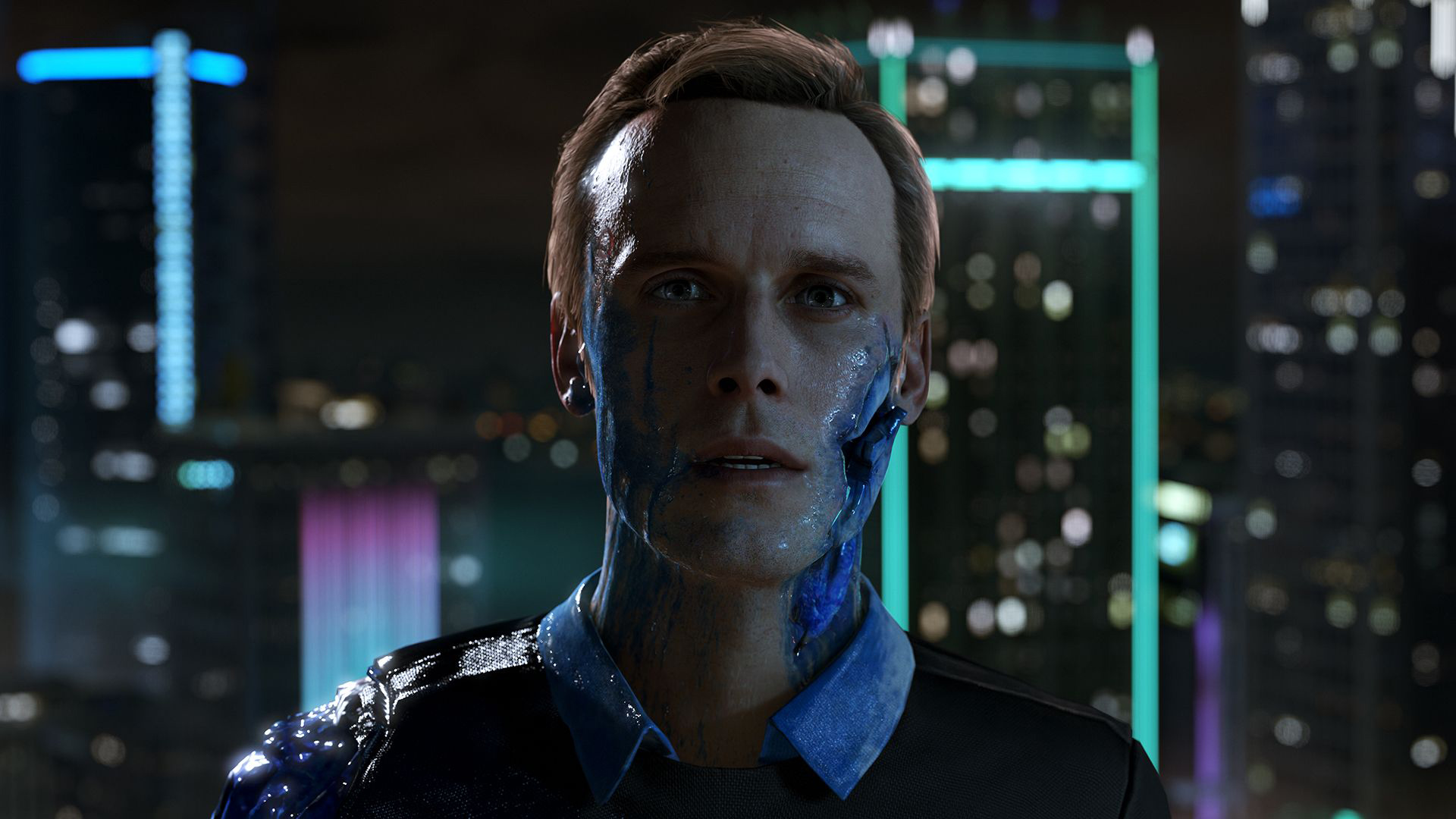Real human being
Until this week at E3, when I thought of Detroit: Become Human, I thought about Kara the android. But now I have a new name and face to associate with Quantic Dream’s PlayStation 4 neo-noir thriller: Connor. Dude does not mess around! He’s a different model of tin man, an advanced prototype specifically created to help humans deal with “deviant” androids who have all of a sudden begun acting strangely — exhibiting signs of human emotions — for reasons not yet known.
In the hands-off demo I saw (the same one you caught a glimpse of in this week’s trailer), Connor is sent into a swanky high-rise apartment to avert a hostage crisis. The police are on the scene, banged-up, angry, and ready to gun down the rogue android and be done with it already. Problem is, he’s standing out on the edge of a balcony with a little girl and a firearm in hand. He’s ready to jump. It’s your job as the cold, calculated Connor to make sure he doesn’t leap off with her.
Leading up to that tense-as-hell encounter which can end in numerous ways, including the death of the hostage or Connor himself, you’ll walk through the apartment to gather any clues or information you can to raise a sometimes-on-screen “probability of success.” Take too long and that’ll be its own ending: a bad one.
Each playable character in the game (Kara being the only other confirmed one, with potentially more to come) has a specific feature. Connor’s is the ability to reconstruct and simulate past events. He can scrub through them to gain insight (think Arkham, to an extent). For this demo, he was able to piece together that the suicidal android was actually a caretaker for the girl’s family who served them well — up until he caught on to their plans to purchase a higher-end replacement.
The more details you can uncover like that, the better equipped you’ll be. More dialogue and action choices will open up. On the demo-giver’s first time through, he didn’t do a particularly thorough investigation, so he had some locked options and his talk-down attempt ended in Connor running up to elbow the android off the edge and catching the girl. She survived, so it was a “success,” technically, but Connor was shot to hell at the last second. Apparently “all characters can die.”
On the second attempt, the presenter was able to find a gun (a no-no for androids) and when things once again took a turn for the worse, he got a surprise shot in, saving the girl and Connor. I’m not sure how many genuinely distinct ways this sequence could have played out, but the two examples I saw had little overlap in terms of dialogue. Both playthoughs were nerve-wracking. Detroit‘s cinematic presentation is on point.

What I didn’t get here at E3 is a strong sense of the the outside world, or much of anything to do with Kara as far as how she’ll play.
According to director David Cage, the intent for the setting was to avoid flying cars and laser guns and instead focus on technology that exists in some form in real-world labs today (aside from one big exception: the human-like androids). And for the narrative, he’s not going for the rogue-AI-are-very-clearly-bad angle. Selfish, tech-dependent, war-torn mankind, it seems, could be the true evil here.
I can’t speak to where the mystery is going or what it will be like to “become human,” but I will say that this specific scenario with Connor worked for me. I bought into it, which is something I’ve struggled with for past Quantic Dream games. If the rest of Detroit can keep me engaged like this, I’ll be a happy camper.








